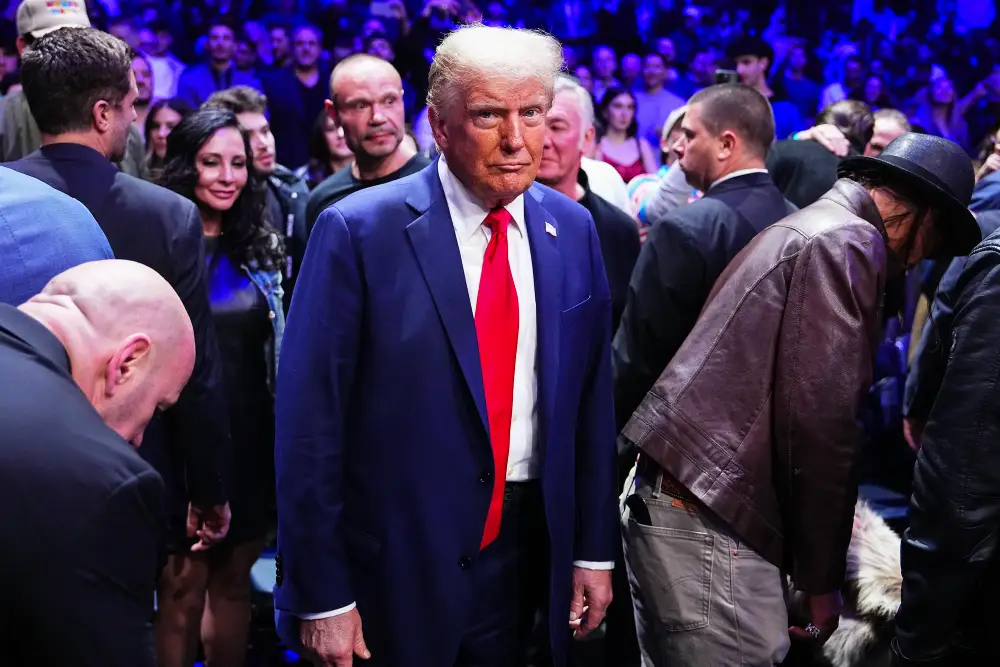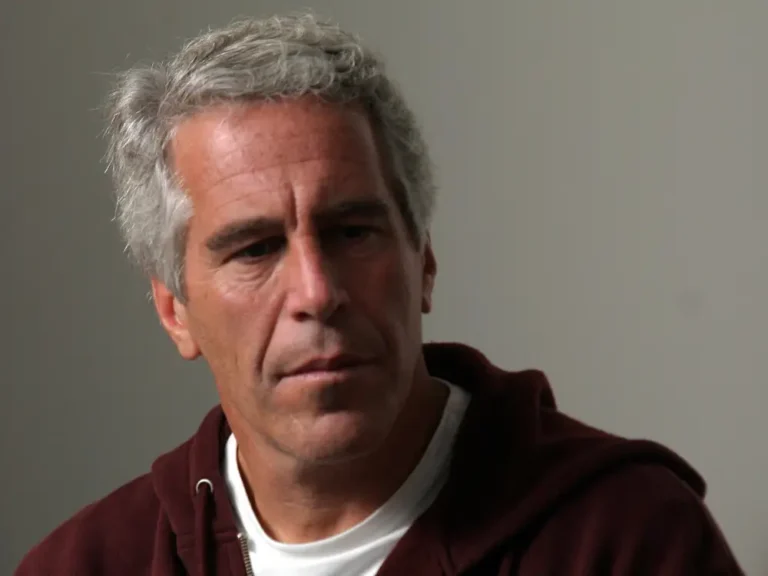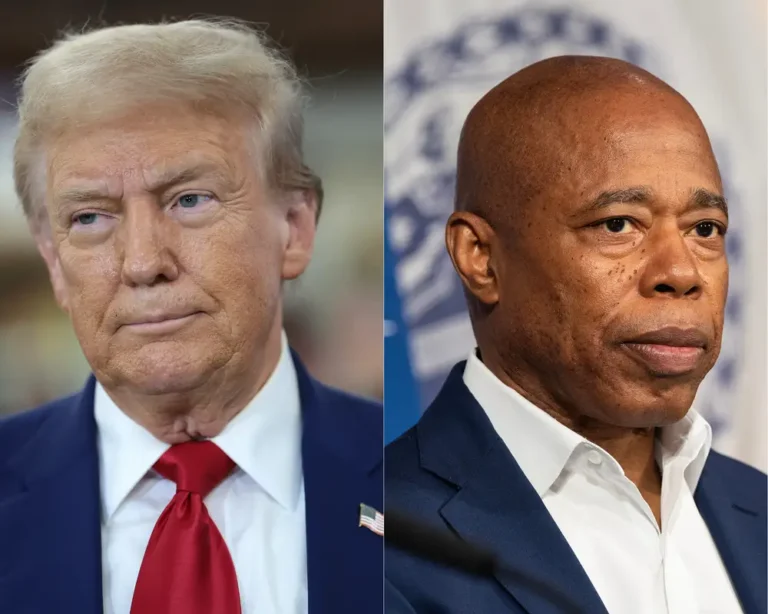Trump wants the power to single-handedly choke off government spending. Lawmakers aren’t sweating it yet.

Trump has explicitly pledged to “challenge” a 1974 law that prevents him from refusing to spend money approved by Congress.
Donald Trump and his allies have long signaled that if elected to a second term, he would seek to reduce the constraints that presidents typically face when carrying out their agenda.
That vision is beginning to take shape, with Trump’s recent demand for recess appointments signaling a desire to bypass the Senate’s role in confirming his nominees. But the president-elect doesn’t just want more control over staffing — he also plans to try to assert his power over government funding by simply refusing to spend money that Congress has already approved.
It’s called “impoundment,” and it’s been mostly illegal for the president to do since 1974, when Congress passed the Impoundment Control Act after President Richard Nixon refused to spend congressionally approved funds on programs he personally opposed.
In a June 2023 campaign video, Trump argued that the law was unconstitutional and pledged to “do everything I can to challenge” the law in court and, “if necessary, get Congress to overturn it.”
If Trump successfully pushed for the elimination of that law, he could gain unilateral power to defund vast swaths of the federal government, refuse to dole out foreign aid, or withhold federal funds to pressure others to bend to his will.
Elon Musk and Vivek Ramaswamy, the leaders of a newly announced Department of Government Efficiency, wrote in a joint op-ed article on Wednesday that they “believe the current Supreme Court would likely side with” Trump and declare the law unconstitutional. Impoundment has been floated as one way that Trump could singlehandedly enact DOGE’s recommended cuts to the federal budget.
Meanwhile, lawmakers on Capitol Hill — including those on the House and Senate appropriations committees that control government spending — don’t seem concerned about Trump’s impoundment power grab.
“I’m going to have to get back to you on that one,” Republican Sen. Shelley Moore Capito of West Virginia told B-17. “I haven’t dreamed about impoundment, and haven’t really focused on it, so I don’t know.”
“To be honest with you, I’ve not really followed it very closely,” Republican Rep. Robert Aderholt of Alabama told B-17, later adding in a statement issued via a spokesman that he “would be happy to work with” Trump on fixing what he called a “broken” budget process.
Rep. Rosa DeLauro of Connecticut, the top Democrat on the House Appropriations Committee, told B-17 that Trump “doesn’t have the constitutional authority” to impound funds but that her “first order of business” is dealing with a government-funding deadline.
‘The Congress can’t just be pushed aside’
Trump’s quest for impoundment powers is likely to engender resistance, at least from Congress. Funding the government has long involved a complex set of negotiations between Democrats and Republicans in the House and Senate, and spending bills typically contain a broad range of provisions designed to satisfy different groups of lawmakers. An ability to tinker with those arrangements unilaterally after the fact would represent a significant shift in power away from the legislative branch.
“If it’s something that further weakens Congress’ ability to do its job the way they should be, then I’m going to look at that real carefully,” Rep. Mark Amodei, a Nevada Republican who serves on the House Appropriations Committee, told B-17. He added that there “would be a problem” if Trump tried to impound funding approved by both chambers of Congress.
“The Congress can’t just be pushed aside,” said Rep. Joe Morelle of New York, a Democratic member of the committee. “I would hope that we wouldn’t allow ourselves to be pushed aside, but we’ll see.”
But Trump is also dealing with a far more obedient GOP than he was during his first term, and even Republican appropriators aren’t fully ruling out impoundment. Rep. Tom Cole of Oklahoma, the Republican chairman of the committee, has characterized impoundment as a “tool in the toolbox” for Trump, The Washington Post reported.
What Trump could do with such sweeping powers
Even if Congress won’t grant Trump impoundment powers, he has another potentially more attractive avenue: the courts.
It’s unclear whether the Supreme Court would ultimately side with Trump and strike down the law, granting him the sweeping power to cancel government funding at his behest.
“I think we’re always very mindful of the fact that this court has broken tradition on a whole host of issues, whether it’s reproductive rights or immunity,” Morelle said. “When we talk about how the American people have not elected a king — we don’t have a sovereign — this is what we’re talking about.”
In general, Trump and other GOP supporters of impoundment have primarily described it as a means to simply reduce government spending he considers wasteful.
“If it takes fewer resources to implement a program than what was appropriated, an agency should not be forced to waste taxpayer dollars,” said a June op-ed article cowritten by Mark Paoletta, a GOP lawyer who served in the Trump administration’s Office of Management and Budget. “If there is room for savings in federal programs, why should the president be restrained from ordering agencies to shrink the size of the federal government?”
But there’s also concern that Trump could use that power in a more punitive way, withholding funds set aside for projects in individual lawmakers’ districts in order to punish them for crossing him. Daniel Schuman, a Congress expert who’s the executive director of the American Governance Institute, laid out a variety of scenarios in a July op-ed article.
“The president’s not supposed to be a super-legislator in that way,” Schuman told B-17 in a recent interview. “The president shouldn’t be able to blackmail members of Congress.”
A Trump-Vance transition spokeswoman, Karoline Leavitt, did not address B-17 inquiry about whether Trump might pursue such punitive measures, merely saying in a statement that the president-elect has “a mandate to implement the promises he made on the campaign trail” and that “he will deliver.”






